
Cuisine
Malagasy cuisine
Malagasy cuisine is characterized by the use of local ingredients such as rice, cassava, and seafood. The cuisine is also known for its use of spices, particularly vanilla, which is a major export of Madagascar. Malagasy cuisine is typically simple and hearty, with dishes such as romazava (a meat and vegetable stew) and ravitoto (a dish made from cassava leaves and pork).
Typical ingredients
Rice, Cassava, Seafood (including shrimp, crab, octopus), Zebu (a type of cattle), Pork, Chicken, Beans, Peanuts, Ginger, Garlic, Vanilla, Cloves, Cinnamon, Turmeric
Presentation and garnishing
Presentation and garnishing are not a major focus in Malagasy cuisine.
Madagascar is the world's largest producer of vanilla, which is a major export of the country.
More cuisines from this region...
South African cuisine, Mauritian cuisine, Malawian cuisine, Mozambican cuisine, Seychellois cuisine, Zambian cuisine, Zimbabwean cuisine, Botswana cuisine, Namibian cuisine, Cuisine of Eswatini
History
The history of Malagasy cuisine is closely tied to the island's history of colonization and trade. The cuisine has been influenced by African, Asian, and European cultures, as well as the island's own unique flora and fauna. The use of rice, for example, is thought to have been introduced by Asian traders, while the use of spices such as cloves and cinnamon is thought to have been introduced by Arab traders. The cuisine also reflects the island's history of slavery, with dishes such as ravitoto being a staple of the slave diet.
Cultural significance
Malagasy cuisine is an important part of the island's culture and identity. Many traditional dishes are associated with specific regions or ethnic groups, and are often served at festivals and other celebrations. The cuisine is also an important part of the island's economy, with many local ingredients such as vanilla and seafood being major exports.
Health benefits and considerations
Malagasy cuisine is generally healthy, with an emphasis on fresh, locally-sourced ingredients. However, some dishes may be high in fat or salt.
Malagasy cuisine dishes Browse all »
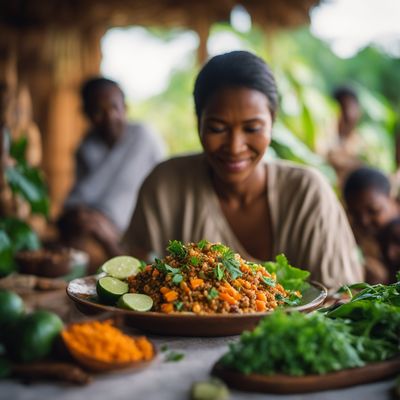
Laoka
Laoka is a traditional dish from Madagascar that is made with a variety of vegetables and spices. It is a healthy and flavorful dish that is perfect for any occasion.
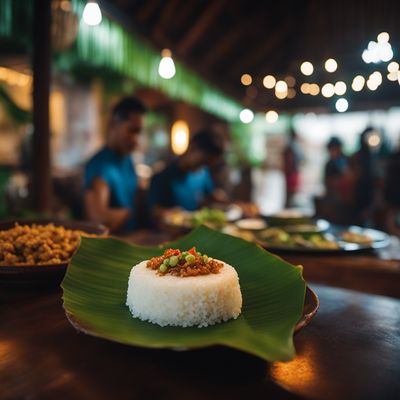
Sapie
Sapie is a traditional dish from the Indonesian island of Sulawesi. It is a type of rice cake that is steamed in banana leaves and served with a spicy sauce.
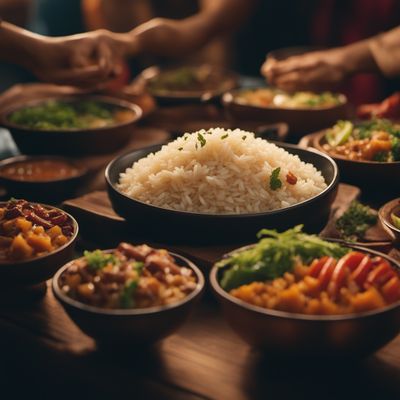
Vary amin anana
Rice with Meat and Vegetables
Vary amin anana is a traditional Malagasy dish made with rice and leafy greens. It is a simple yet flavorful dish that is enjoyed throughout Madagascar.
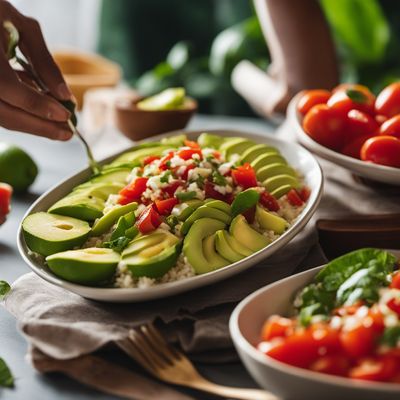
Lasary avocat
Lasary avocat is a traditional Malagasy dish made with avocado and tomato. It is a simple and healthy dish that is perfect for a light lunch or dinner.

Bensone
Bensone is a traditional Malawian dish that is typically served during special occasions such as weddings and holidays. It is a sweet and savory dish that is made with ground...
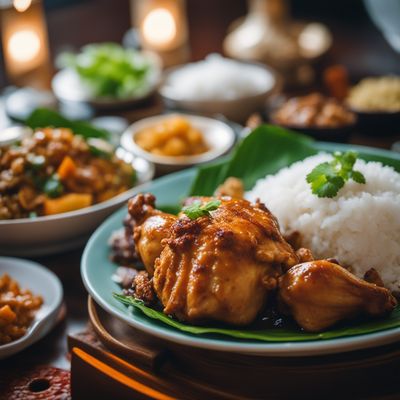
Akoho misy sakamalao
Chicken with Coconut Milk
Akoho misy sakamalao is a popular dish from Madagascar. It is a simple yet delicious dish that is perfect for any occasion.
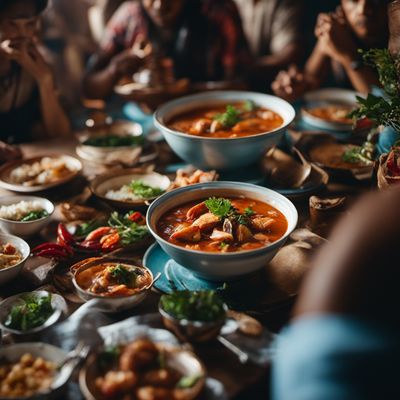
Trondro gasy
Fish stew
Trondro gasy is a traditional dish from Madagascar made with beef and vegetables. It is a hearty and flavorful dish that is perfect for a cold day.
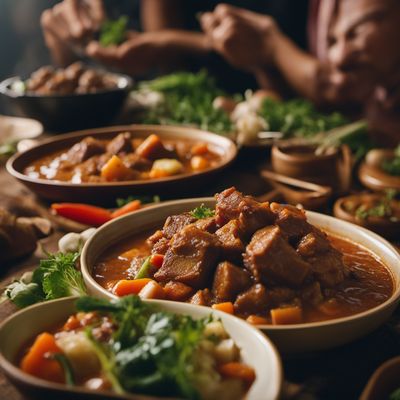
Fongadina
Pork and vegetable stew
Fongadina is a traditional Malagasy dish that is made with rice, beans, and vegetables. It is a simple and satisfying dish that is perfect for a quick and easy dinner.
Malagasy cuisine recipes Browse all »
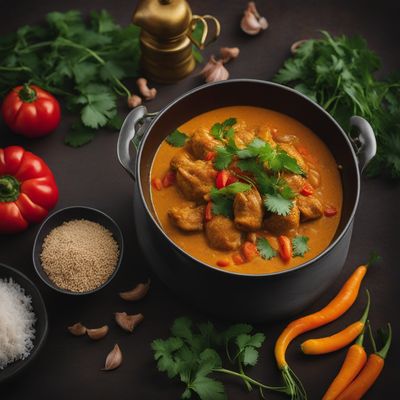
Malagasy Coconut Chicken Curry
Exotic Coconut Chicken Delight

Malagasy-Style French Toast
Madagascar's Sweet and Spicy French Delight
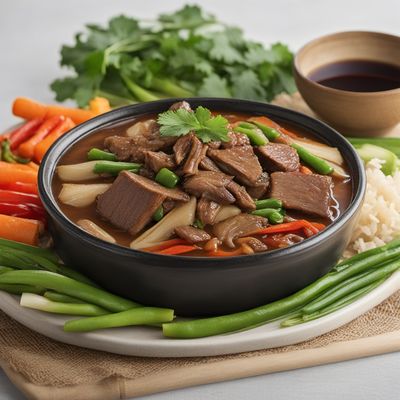
Malagasy-style Sukiyaki
Madagascar's Flavorful Sukiyaki Delight
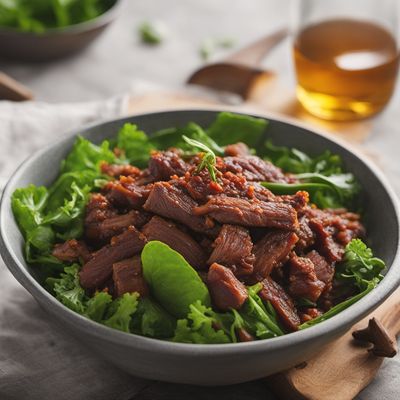
Romazava with a Twist
Malagasy Comfort: A Flavorful Romazava Recipe
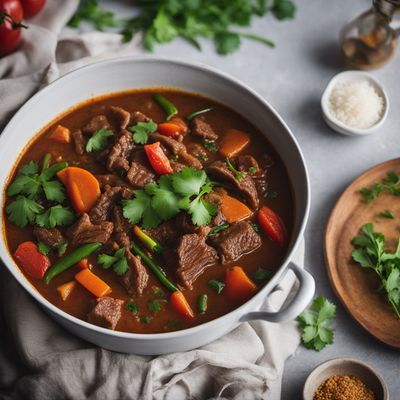
Saosisy sy tsaramaso (Malagasy Spicy Beef Stew)
Fiery Beef Delight: A Spicy Malagasy Stew
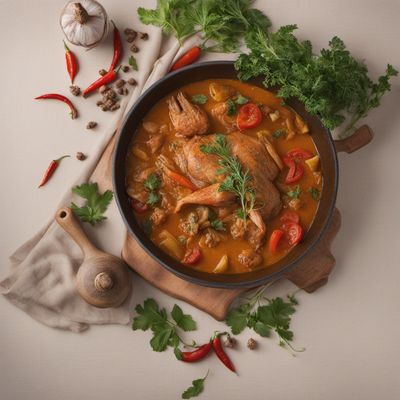
Malagasy-style Rabbit Stew
Savory Rabbit Delight: A Malagasy Twist on Italian Cuisine

Fongadina with Coconut Rice
Tropical Delight: Fongadina with Fragrant Coconut Rice

Akoho Misy Sakamalao with Coconut Rice
Malagasy Coconut Chicken with Fragrant Rice
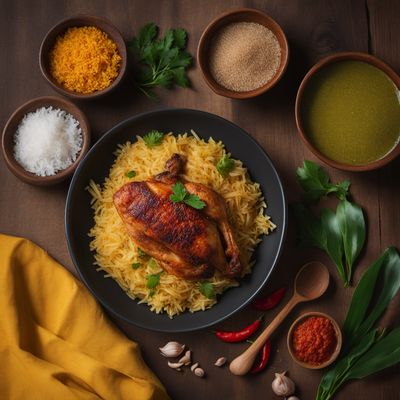
Akoho sy voanio with Coconut Rice
Malagasy Delight: Fragrant Chicken with Coconut Rice

Malagasy Miyeokguk
Seaweed Delight: Malagasy Miyeokguk

Malagasy-inspired Spicy Tomato Salsa
Fiery Tomato Delight: A Malagasy Twist on Spicy Salsa
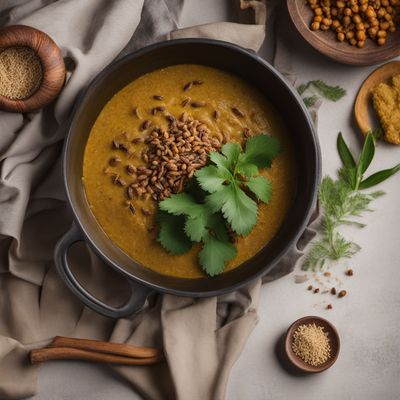
Malagasy Montasù
Savory Malagasy Cassava Cake